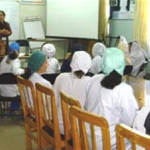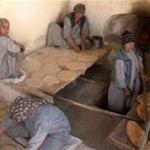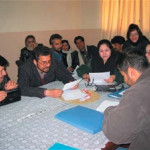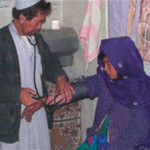
In 2003, the Afghan Ministry of Finance created the Offices of Cash and Debt Management (OCD) in an effort to improve its ability to manage donor assistance and administer taxes. Like most Afghan government agencies, the OCD is staffed with young university graduates who have general backgrounds in economics, statistics or information technology, but limited practical experience.

Afghanistan's maternal and child mortality rate is among the highest in the world, but the Taliban would not allow the training of new nurse-midwives. When the regime was ousted, only 537 skilled, trained nurse-midwives — kabilaha — remained in the country. USAID is working to triple that number and, at the same time, establish trained midwifery as a profession worthy of support and respect.

USAID provides Afghan women with the means to earn a living through 86 bakeries managed by widows that help feed the elderly, disabled,orphans and other destitute families bakeries. Employing 897 poor women, this program reached more than 176,000 Kabul residents in 2003 with a daily ration of fortified bread at a subsidized price.

The boulani - a potato-filled pastry - is neither warm nor fresh, but the child can’t resist the treat. Flicking flies away, the vendor hands one to the little girl. Later, the child’s mother cautions her against eating food left uncovered for too long. A pregnant mother waits at home while her husband takes their son to be immunized. At the clinic, he learns immunization can protect his wife--and through her, the new baby.

In Afghanistan, approximately 42% of deaths during childhood result from treatable and often preventable illnesses including respiratory infections and diarrhea. Working with the Afghan Ministry of Health to prevent these unnecessary deaths, USAID provided nearly fifty-four metric tons of pharmaceuticals (119,016 lbs.) for use by nineteen nongovernmental organizations (NGO) in fourteen rural Afghan provinces.








Comment
Make a general inquiry or suggest an improvement.